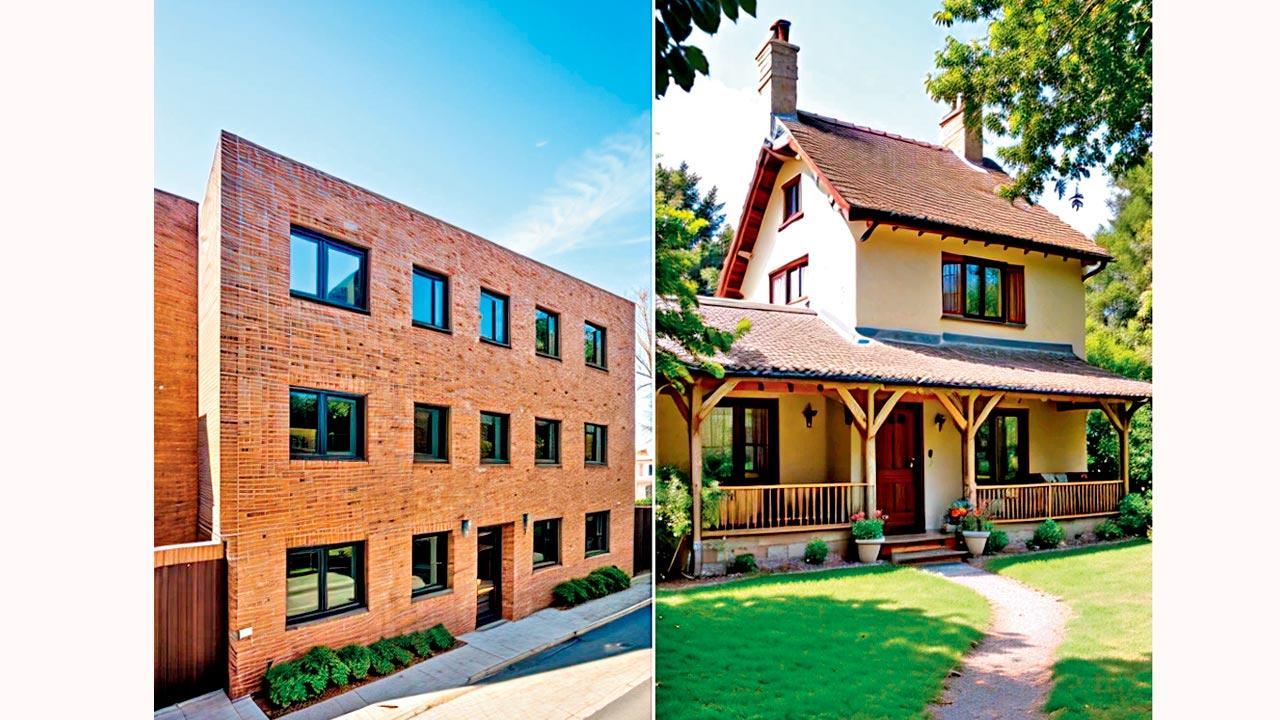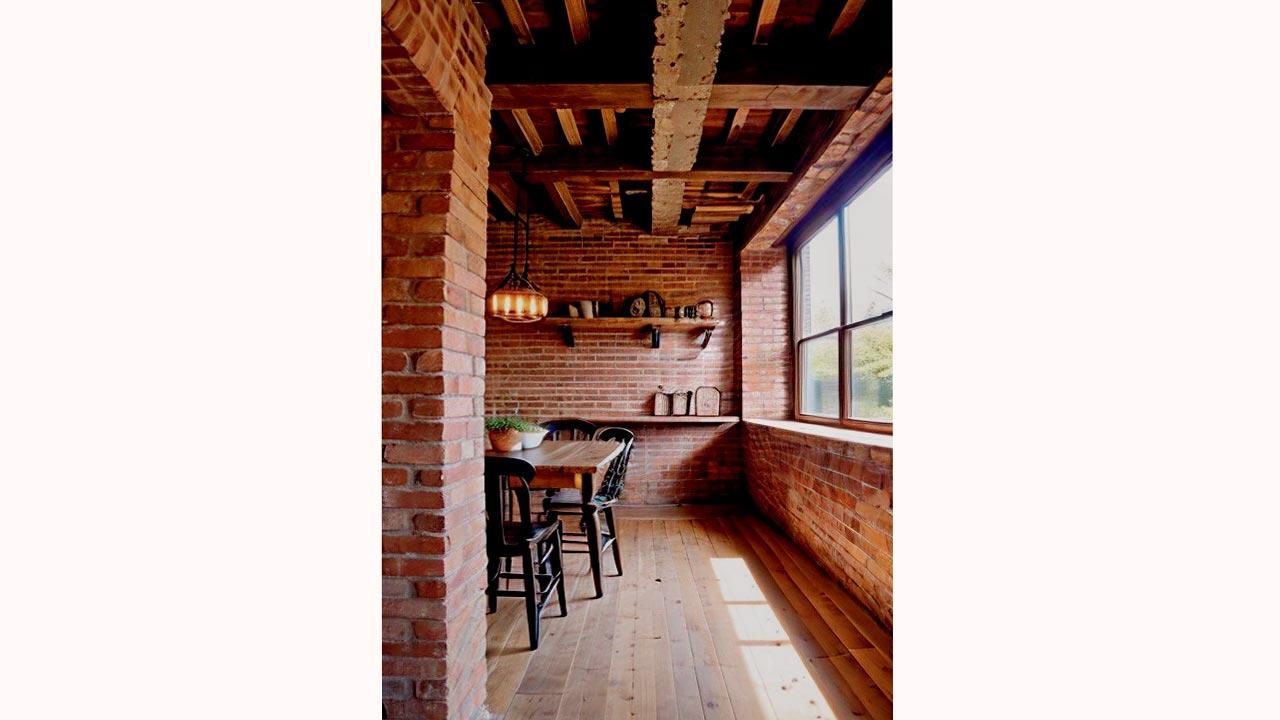With architects in uproar over a recent Instagram post highlighting the use of AI to make design layout plans, Sunday mid-day spoke to two professionals from the field with differing views on whether AI can get it right

AI-generated building façades by seaart.ai


‘AI can never do what the human touch can’
Vilas Nagalkar, senior architect and member of the Practising engineers, architects and town planners association (India)
I believe AI is a great tool to plan big-scale projects or even when you have to design small homes where the need is a one-room-kitchen. I have seen it being used in public infrastructure when we have a short period time in which a lot of work has to be done, in terms of creating 100 to 200 design models.
But when it comes to me personally, I am still a pen-and-paper architect. I do believe that the kind of detail, thought and design layout done in the old-school way doesn’t come from using software, including Autocad. While I welcome AI in the architecture field, it is something that is—at least for now—viewed as a tool that probably eases our work a bit. But if you want finesse, it is best that there is drafting involved.
 Vilas Nagalkar
Vilas Nagalkar
In public infrastructure, I have seen it being used by and large for projects that, as I said, are planned on a massive scale, like town planning, etc.
With older software, like Autocad, etc, we had seen that most commercial or residential high rises in Mumbai began to look pretty much alike. So there are these issues as well, and the primary element in these designs were the glass facades, which we later have seen have caused several other issues like overheating as well.
So, while I view it as a good mass-production tool, I do not think AI will be able to do what the human touch can.
‘AI can empower the client to express their vision better’
Keith Menon, sustainable architect and co-founder of Spiro Spero
 AI portals such as seaart.ai can also generate interior layouts
AI portals such as seaart.ai can also generate interior layouts
I think AI is already here. I understand the insecurity surrounding it and that many look at it as something that will come and take our jobs but it’s a great tool. Earlier, in architecture you had to learn drafting, today you don’t see too many people drafting. For the last few decades, we have witnessed software like SketchUp, AutoCAD and many more, but no one complained about their use—it just made our life simpler. Hand draft layouts and designs are rare.
I don’t think that this technology will make us obsolete, we still have to have human intervention. Like the other software, the end goal is to come up with a visual that is beautiful. I feel that most of us have already been working with technology for more than we realise, so to blame only AI for coming in and computerising the process is not very true.
 Keith Menon
Keith Menon
I also feel that AI empowers the client, who can feed their wishlist into the software and it renders a reference image which they can then show us to explain what they want. Today, clients are also getting familiar with the technology, so we are seeing the AI renders getting closer to the client’s vision. But, of course, these are just reference images, like Pinterest. You can use these as something to understand what the client wants. It is finally us who will tell them what part of the design is feasible and what isn’t.
If you want an example, we can say that a non-writer might think that using AI for creative writing is the best discovery ever, but good writers will steer clear of it.
Another advantage of AI is that it helps us jump a few steps ahead. Most of my work is in landscaping. Here, AI can help us to envision where the stream should be and maybe the way you can put it together. Finally, we step in and see what is feasible as an executable plan.
 Subscribe today by clicking the link and stay updated with the latest news!" Click here!
Subscribe today by clicking the link and stay updated with the latest news!" Click here!








